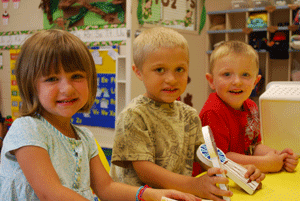 As adults we sometimes struggle to understand some of the events that happen in our world—accidents and natural disasters are not easy to comprehend at any age but children have less experience with these things.
As adults we sometimes struggle to understand some of the events that happen in our world—accidents and natural disasters are not easy to comprehend at any age but children have less experience with these things.
Even if you manage to shield your child from the details of tragedies in the news, this doesn't mean that he or she won't hear about these things elsewhere. CNN.com writer Katia Hetter wrote about how her 5-year-old learned of a plane crash while she and her family were on an airplane. Someone next to them on the plane was watching coverage of the crash and Hetter could not prevent her daughter from seeing the images.
She quickly distracted her child but was left pondering just how much to tell her child about these kinds of events. An expert interviewed for the article, psychology professor Alan Kazdin who is also the director of the Yale Parenting Center and is author of "The Everyday Parenting Toolkit” said that, "By the time children are in day care or school, parents can't always protect them from the bad news of the world…" and that Hetter's decision to distract her daughter was the right thing to do.
The article says that parents need to know their child's temperament and answer questions while also communicating reassurance. When it comes to explaining tough topics, some parents go to one extreme or another—evading the topic and saying nothing or giving a child too many details. Think about age-appropriate explanations and answer only as much as asked. Answer the question your child asks and if they seem okay with it, then you don't have to continue. When you continue to explain once your child's questions have been answered, you may confuse or burden him or her with too much information. Let your child know that you are there if he or she has more questions.





